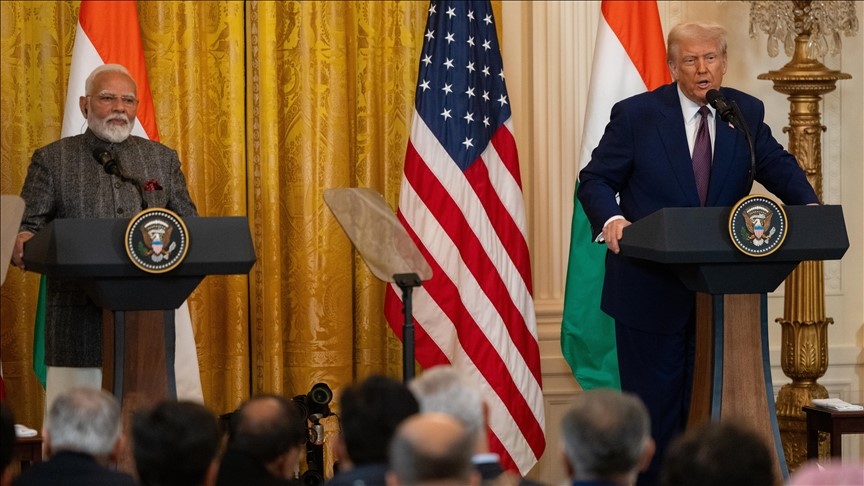Trump’s Tariffs and Deportations Strain India-US Relations
Why in the News ?
US trade tariffs and deportation policies under President Trump have strained India-US diplomatic ties. India urges Washington to maintain cooperative engagement, especially as both countries navigate strategic partnerships, trade negotiations, and shared concerns over China’s growing global influence.
Trump’s Hardline Trade Approach and Global Impact:
- The Trump administration’s tariffs, aimed primarily at China, have affected global economies, including India.
- Tariffs on all countries prevent China from rerouting products, though India enjoys relatively lower rates.
- New Delhi has engaged in active negotiations to secure a balanced trade deal, buying time through a 90-day tariff pause.
- Trump’s unilateral actions reflect instinct-driven diplomacy, raising global business uncertainty and pressuring allies.
Erosion of India-US Goodwill and Trust
- India invested decades in building a strong, trust-based relationship with the US, beginning from Vajpayee’s era to Modi’s strategic outreach.
- Tariffs and public deportation of Indians have eroded goodwill and weakened pro-US voices in India.
- Rising skepticism gives space to naysayers favoring closer ties with China and Russia.
- Deportations and narrow immigration policies damage America’s long-standing image as an open, opportunity-rich nation.
Challenges to Educational Ties and Strategic Cooperation
- US universities, once Indian students’ top destination, now face trust issues due to deportations and restrictive interpretations of visa laws.
- Academic freedom and cultural openness, once American strengths, are under threat.
- India seeks a smarter US strategy, urging Washington to differentiate between friends and foes and focus on China.
- India hopes for continued cooperation in Quad and global partnerships rather than punitive unpredictability.
Tariffs & Reciprocal Tariffs – Key Points● Tariff: A tax on imported goods/services to regulate trade, protect industries, generate revenue, correct imbalances, and exert leverage. ● Reciprocal Tariff: Imposed in response to another country’s tariffs, ensuring fair trade by mirroring duties. ● Discounted Reciprocal Tariff: A mutual arrangement to reduce import duties below standard rates to correct trade imbalances. ● ‘Liberation Day’ (April 2, 2025): Marked the launch of reciprocal tariffs by the U.S. ● Rates: Universal 10% tariff, rising to 50% based on trade surpluses. ● India faced: 26% discounted tariff; China 34%; EU 20%; Japan 24%; Taiwan 32%. ● Goal: Balance deficits, curb currency manipulation, address regulatory barriers. |




